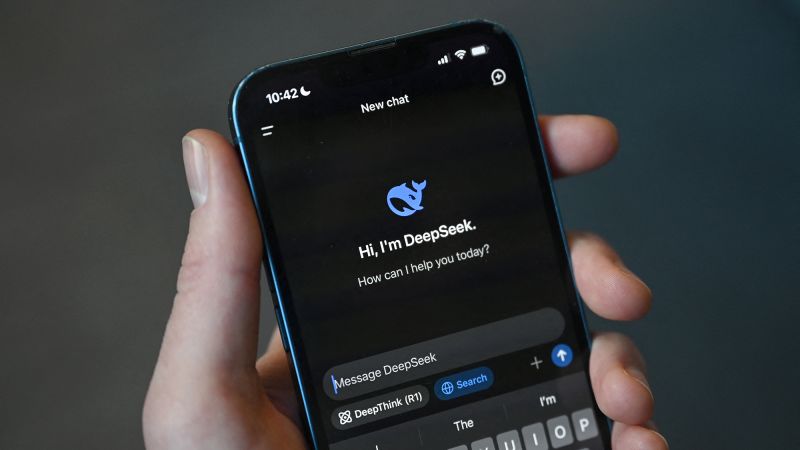DeepSeek, a burgeoning AI startup based in Hangzhou and founded in 2023, is shaking up the global AI landscape, and its influence is rapidly expanding within China. Notably, the company’s latest AI model, DeepSeek, has stirred considerable reactions in the stock markets and among various AI players. In light of this, major Chinese tech firms, which were previously developing their own chatbot services, are now rushing to adopt DeepSeek’s open-source model to enhance their offerings. This marked shift indicates a notable transformation in the competitive landscape and AI innovation in China.
Huawei, one of the major players in the telecom sector, recently announced its intention to operate DeepSeek on its proprietary computing hardware, utilizing Ascend processors that are domestically manufactured. This move has fueled excitement among AI observers, who regard it as a significant milestone. Analysts from Bernstein, an investment and research firm, emphasized that this partnership illustrates how China can achieve globally competitive AI capabilities without relying on Nvidia’s advanced chips. This partnership is particularly notable given the backdrop of U.S. sanctions aimed at restricting China’s access to cutting-edge technology, intended to prevent it from developing advanced weapons and AI systems.
In recent months, the Biden Administration has enacted several export controls against China, yet DeepSeek’s success and its R1 AI model capture a narrative of defiance against these limitations. The model’s affordability and performance challenges the prevailing assumptions that these sanctions could effectively hinder China’s technological growth. Additionally, the rapid adoption of DeepSeek by various Chinese AI chipmakers such as Moore Threads, Enflame (backed by Tencent), Kunlunxin (Baidu), and Hygon Information Technology underscores the model’s significant market traction.
The excitement surrounding DeepSeek extends beyond chip manufacturing companies. Key players in the cloud computing sector, including Alibaba, Tencent, Baidu, and Bytedance (parent company of TikTok), have swiftly integrated DeepSeek’s services into their cloud platforms. Major telecommunications providers, alongside electronics titan Lenovo and automotive company Geely, are also leveraging DeepSeek’s technology, demonstrating a widespread acceptance of its innovative capabilities. It reflects a crucial recognition of open-source large-model solutions, suggesting that competitive prowess will lead to integrations with AI giants.
Despite the competing large-language models rolled out by the aforementioned tech companies since ChatGPT’s debut, they readily welcome DeepSeek into their ecosystems. The chief analyst at Omdia, Lian Jye Su, notes that the primary driver behind adopting DeepSeek’s model is to increase platform usage among customers and businesses. The harsh reality remains: monetizing large AI models without established consumer and enterprise applications is challenging.
Interestingly, the enthusiasm for DeepSeek’s model is not confined to the Chinese tech giants; it extends globally to American tech behemoths like Nvidia, Microsoft, and Amazon, which have also embraced the startup’s technology. The rapid ascent of DeepSeek’s AI Assistant app is significant, as it topped global download charts, outpacing ChatGPT within days of its launch, and amassing over 22 million daily active users in less than three weeks.
Liang Wenfeng, the founder of DeepSeek, has become a celebrated figure in China, often hailed as a national hero due to the startup’s astonishing performance. However, analysts caution that despite the promising developments, China’s AI chip sector still encounters hurdles stemming from U.S. export restrictions on advanced chipmaking equipment. Linghao Bao from Trivium China highlights that while DeepSeek’s models can be adapted to various chip architectures, the ongoing chip shortage remains a significant challenge.
Moreover, the meteoric rise of DeepSeek has not gone unnoticed internationally. Governments around the world are scrutinizing the implications of this new AI technology. Last week, countries like Taiwan and Australia, along with some South Korean ministries, instituted bans on their officials’ use of the Chinese AI service, citing data security concerns. Italy, in particular, imposed a blanket ban after inadequate responses to privacy issues raised by their authorities.
In conclusion, DeepSeek’s rapid emergence and adoption within the tech community not only highlights the shifting dynamics of AI development in China but also illustrates the interplay between technology, geopolitics, and security considerations on a global scale. As innovators continue to navigate these complex challenges, the future of AI technology will undoubtedly involve ongoing discussions regarding usage, ethical practices, and international regulations.











